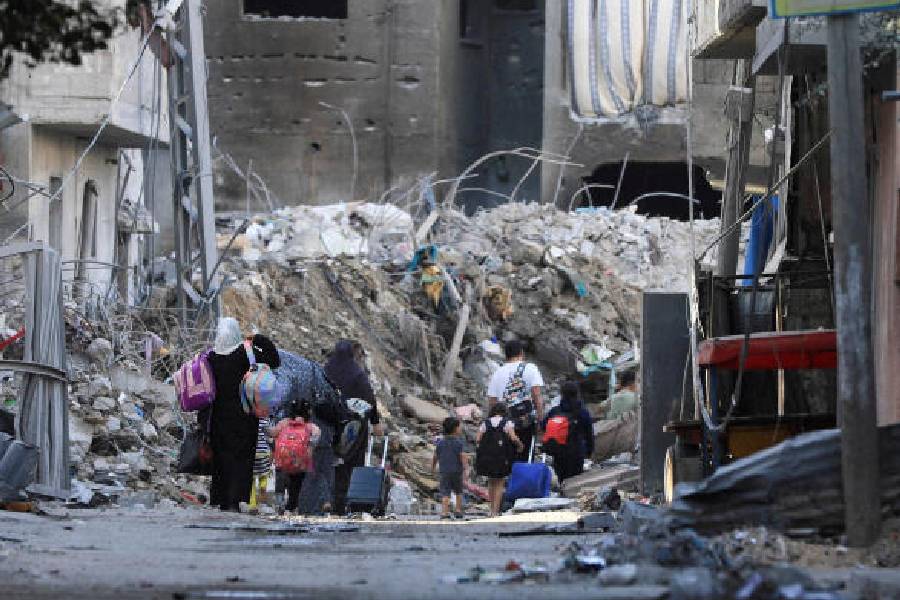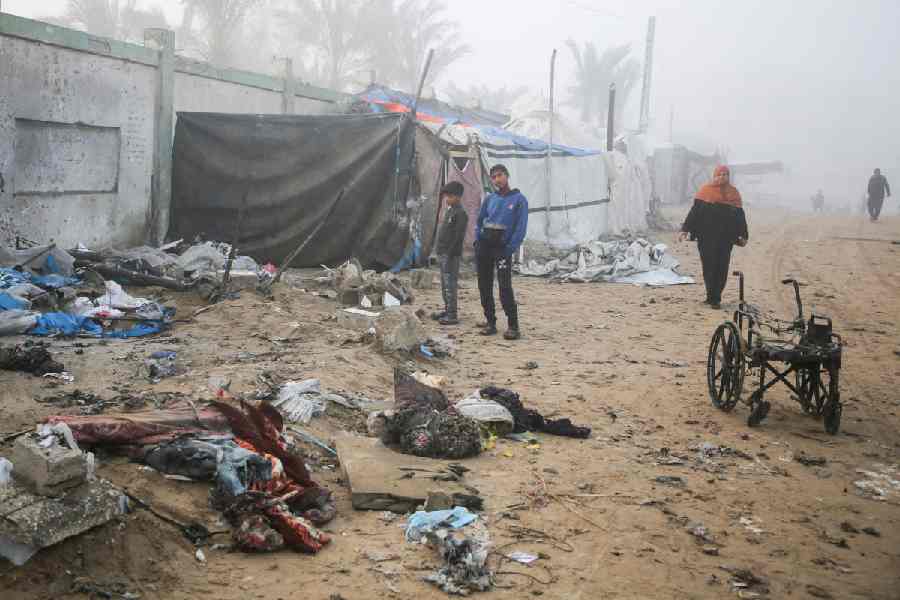Israel faced mounting pressure from some of its closest allies on Wednesday over the plight of civilians in Gaza, where thousands streamed on foot out of the enclave's north because of dwindling food and water and fear of approaching Israeli forces.
Over 70 per cent of Gaza's population of 2.3 million have already left their homes, but the number making their way south has quickened recently as Israeli troops battle Hamas militants inside Gaza City and the humanitarian situation grows increasingly dire.
The Group of Seven wealthy nations called on Wednesday for the “unimpeded” delivery of food, water, medicine, and fuel, and for “humanitarian pauses” in the fighting. Israeli Prime Minister Benjamin Netanyahu has left open the possibility of small pauses to deliver humanitarian aid but has ruled out a broader ceasefire unless all hostages are freed.
There is no end in sight to the war triggered by Hamas' deadly October 7 assault inside Israel.
Israel has said the battle to end Hamas' rule and crush its military capabilities will be long and difficult, and that it will maintain some form of control over the coastal enclave indefinitely — though how it will achieve that remains unclear. Support for the war remains strong inside Israel, where the focus has been on the fate of the more than 240 hostages taken by Hamas and other militant groups.
About 15,000 people fled northern Gaza on Tuesday — triple the number that left on Monday — according to the UN Office for the Coordination of Humanitarian Affairs. They are using Gaza's main north-south highway during a daily four-hour window announced by Israel.
Those fleeing include children, older people, and people with disabilities, and most walked with minimal belongings, the UN agency said. Some say they had to cross Israeli checkpoints, where they saw people being arrested, while others held their hands in the air and raised white flags while passing Israeli tanks.
Hundreds of trucks carrying aid have been allowed to enter Gaza from Egypt since October 21. But humanitarian workers say that is nowhere near enough.
“There is an ocean of needs in Gaza right now, and what's been getting in is a drop in the ocean. We need fuel, we need water, we need food, and we need medical supplies,” Dominic Allen of the UN Population Fund said, speaking from the West Bank.
Residents reported loud explosions overnight into Wednesday across Gaza City and in its Shati refugee camp, which houses Palestinian families who fled from or were driven out of what is now Israel during the 1948 war surrounding its establishment.
Thousands of Palestinians remain in the north, however, many sheltering at hospitals or UN schools. The north has been without running water for weeks, and the UN aid office said the last functioning bakeries shut down on Tuesday for lack of fuel, water, and flour. Hospitals running low on supplies are performing surgeries without anaesthesia, it said.
Majed Haroun said women and children go door to door asking for food.











